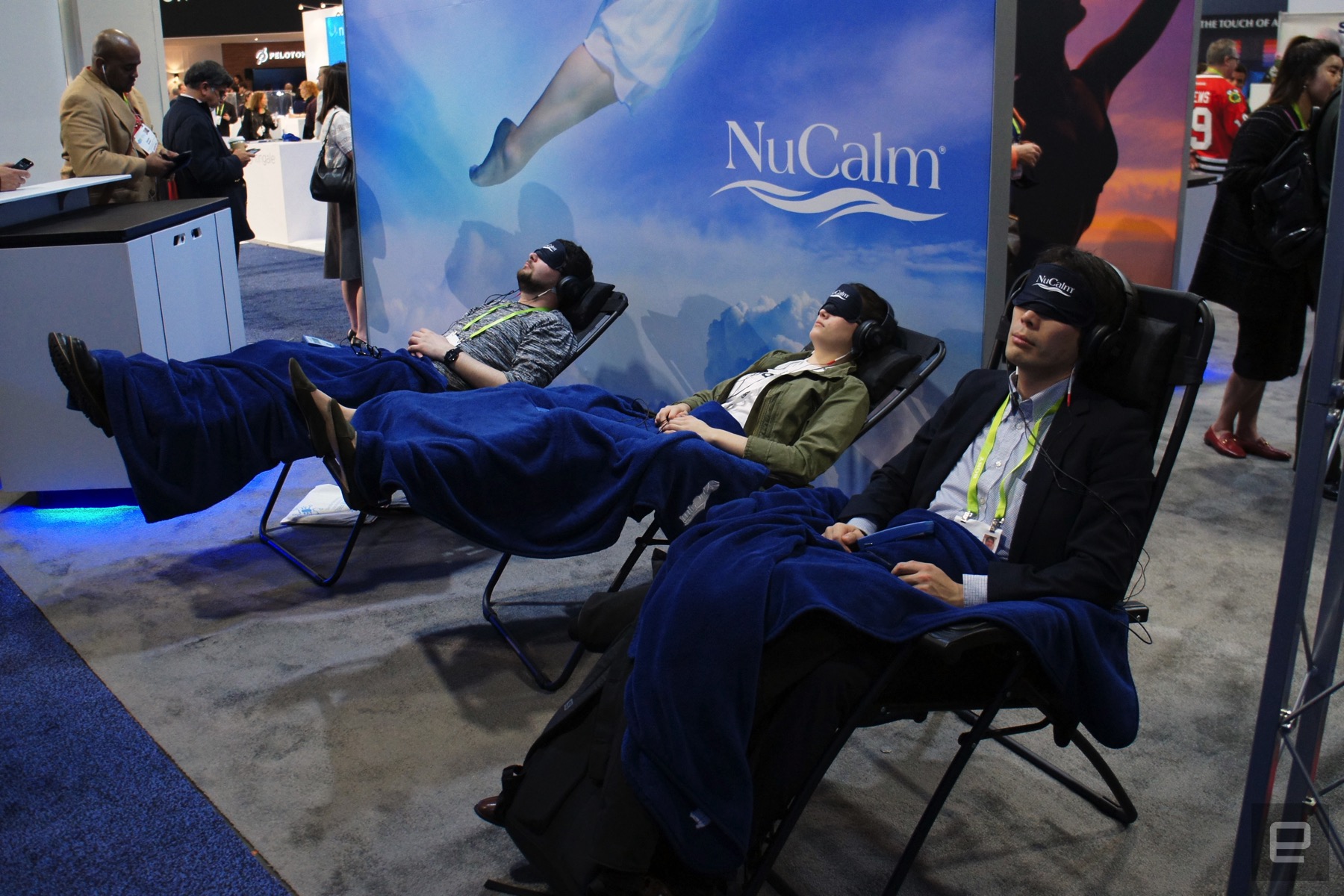Tech wants to solve our tech-related sleep problems

Technology is bad for sleep. It keeps us constantly exposed to an endless cycle of bad news, and the blue light emitted by smartphone and tablet displays suppresses our ability to produce melatonin. Combine that with the feelings of inadequacy generated by watching other people's picture-perfect lives on social media, and it's no surprise that we're all restless.
Sleep technology exists to solve this issue, and there were plenty of companies exhibiting new devices here at CES 2018. Many of them intend to tell you how well, or poorly, you have slept each night, in the hope you'll make better decisions the following day. But, as well as becoming more commonplace, sleep gadgets are going to become far more diverse, at least according to what we saw at the show.
Smartwatches and fitness trackers have tracked sleep for years, using the principles of actigraphy: Monitoring how you move as you sleep with algorithms used to calculate your cycles. The less you move, the thinking goes, the deeper your sleep.
This week, companies like Nokia and Emfit both launched new underbed sensors that do the same job, but without a device on your wrist. The former will track your sleep duration and quality and offers a sleep-coaching function if you're having trouble nodding off. In addition, the Nokia Sleep sensor offers control of your smart home with IFTTT, triggering recipes as you begin to nod off.
Using sleep technology as an extension of the smart home seems to be the beachhead from which these companies plan to enter our homes. Sleepace exhibited a whole suite of connected home gear that'll automate your pad when it senses you're sleeping. Spend enough cash and your residence will turn off the TV and draw the blinds as soon as you climb into bed. When you're rousing the following morning, the system could gently turn on the lights and fire up the coffee machine.
Wake-up lights were sleep technology well before sleep technology was a thing, using daylight simulation to trigger your natural circadian rhythm. It's probably best exemplified by Philips' Wake Up Light, and at CES 2018 competing products appeared from companies like Witti and Aromarest. The latter pulls double duty as a scent diffuser, much like Bescent's forthcoming night-time sleeping aid.
Other devices are attempting to appeal more to the marginal-gains crowd looking to get an edge on their bodies. Dreamlight, for instance, is an intelligent sleep mask that offers light therapy in the eye cups and sleep coaching. If you have taken a genetic test with 23andMe, you can even customize the sleep programs according to your DNA. Even to the point where, should your genetics indicate so, you can attempt to sleep like Leonardo DaVinci, who famously took 20-minute polyphasic sleep naps every four hours.
Sleep Number, which sells smart beds that cost upwards of a thousand dollars, claims that its SleepIQ platform is the "future of health and wellness." The company believes that its monitoring technology will soon be able to proactively spot and warn you of medical conditions ahead of time. For instance, its future beds may be able to identify symptoms such as an irregular heart rate or breathing pattern, look for signs of you being laid up with the flu and relay vital signs to medical professionals. Assuming, of course, that its users are comfortable with the sheer volume of data that is being collected against them.
Then there are the more extreme interventions, like the recently launched bed from Magniflex, which will actually try to stop you snoring each night. Should its sensors detect your nostrils making the sound of falling rocks, the head of the bed will lift up by a couple of inches. That gentle motion should be enough to motivate your unconscious body to shift around, jolting you into stopping snoring.
There's also Somnox, a pricey sleep robot in the shape of a peanut, which you cuddle up to over night. The device is designed to simulate breathing as if you were snuggling up to a loved one or pet, playing soothing music to get you off to sleep. Although setting you back $550 to buy one might make you reconsider just how much you need to spend on getting some shut-eye.
Of course, the lingering issue over many of these products is if there is a genuine need for them at all. Professor Jean Tenge at San Diego State University believes there is a much simpler solution to solve our sleep-related woes: put down the phone. In an editorial at The Conversation, she explained that limiting smartphone use is the fastest way for us to enjoy more restful sleep. The rule of thumb is to avoid using your phone as an alarm clock, don't take it to bed and don't use it in the hour before you sleep. If we want to remain sane, our bedrooms need to be as analog an environment as possible. Not that the technology industry will tell you that, of course, because very few people get rich by not selling you things.
Additional photography: Nicole Lee and Chris Ip.
Click here to catch up on the latest news from CES 2018.
via Engadget RSS Feed "http://ift.tt/2AW4b6o"
Comments
Post a Comment